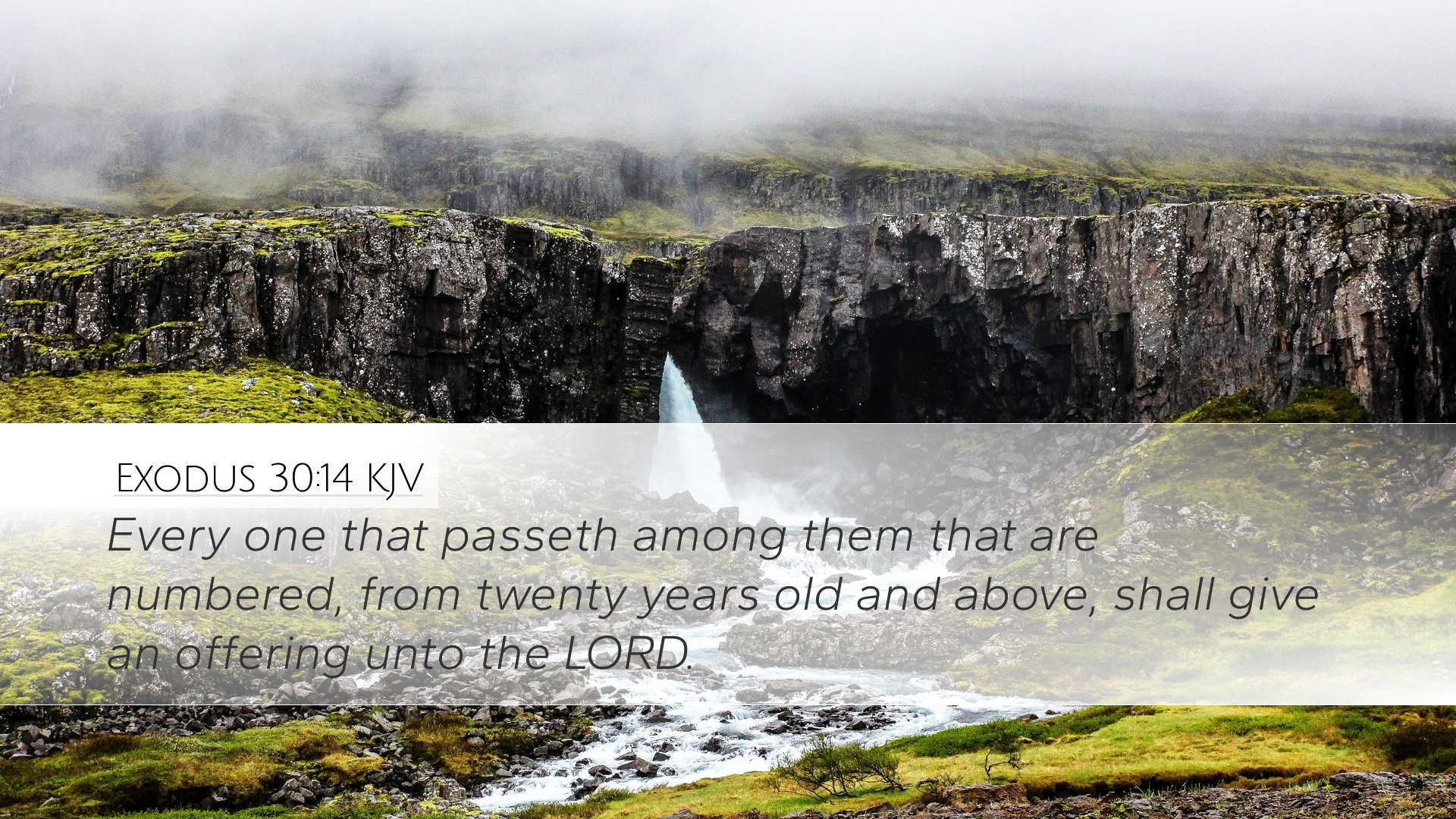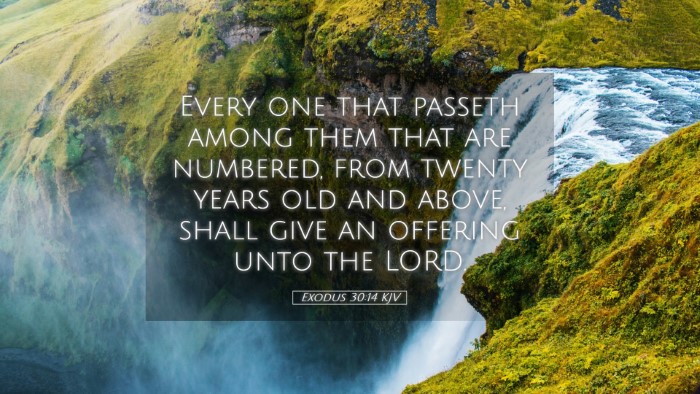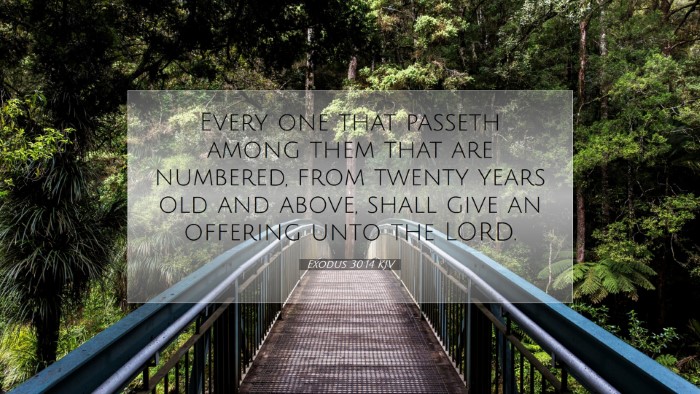Commentary on Exodus 30:14
Verse Reference: Exodus 30:14 - "Everyone who is numbered, from twenty years old and upward, shall give the offering to the Lord."
Introduction
Exodus 30:14 presents a significant directive regarding the census and the contributions required from the congregation of Israel. This verse forms part of a larger legislative framework within the Pentateuch that emphasizes the sanctity of worship and the participation of God's people in the upkeep of the Tabernacle, God's dwelling place among them.
Theological Significance
The context of this verse is crucial for understanding its implications. The command for individuals twenty years and older to give an offering serves both a practical purpose and a ceremonial one.
1. Age of Accountability
Matthew Henry notes that the age of twenty signifies the onset of accountability and responsibility within the community. It marks a transition into adulthood, where individuals are expected to contribute to both the welfare of the community and their responsibilities before God. This concept carries over into the New Testament, where believers are called to maturity in Christ.
2. Collective Responsibility
Albert Barnes emphasizes that the offering required signifies the collective responsibility of the Israelite community to support the sanctuary and its services. By instituting such offerings, God ensures that every adult male participates in the sacred duties, reflecting unity and shared commitment to the worship of God.
3. Atonement and Redemption
Adam Clarke elaborates that the offering is also tied to the themes of atonement and redemption. Each man contributing is acknowledging their standing before God and their need for atonement, reflecting the deeper spiritual truth that all stand in need of grace. Thus, the payment of the half shekel is not only a financial obligation but an expression of faith.
Requirements of the Offering
1. Equality of Contribution
The verse explicitly states that every person must contribute the same amount. This establishes a principle of equality before God, indicating that all are equally valuable in His sight, regardless of their economic status. Whether rich or poor, each person offers the same, highlighting universal need for grace and communal responsibility.
2. Symbolism of the Offering
The half shekel is deeply symbolic. Individually, it represents a cost; collectively, it symbolizes the unity of the nation in their worship and sustenance of the Tabernacle. Matthew Henry points out that this offering was a tangible way for the Israelites to express their devotion and commitment to God’s covenant with them.
Pastoral Applications
1. Encouraging Generosity
This verse offers an important lesson for modern church communities regarding the expectation of financial contributions to support ministry work and the church’s mission. Pastors can use this text to encourage the congregation in matters of stewardship, reminding them that financial giving is an essential aspect of worship and community support.
2. Fostering Unity
By teaching that all members contribute equally, this passage can be employed to foster unity within the church. A community where all are called to the same standard reinforces the idea that every member has a role in God’s work. It helps to diminish divisions based on wealth or status, paralleling teachings found in the New Testament.
Summary and Conclusion
Exodus 30:14 encapsulates vital themes of accountability, collective responsibility, spiritual equality, and the necessity of financial support for the worship community. The historical context invites modern believers to reflect critically on their roles within the church and the importance of faithful giving as an expression of faith in God’s provision. The rich insights from Matthew Henry, Albert Barnes, and Adam Clarke facilitate a deeper understanding for theologians and pastors as they seek to teach and cultivate a spirit of sacrificial generosity within their communities.


